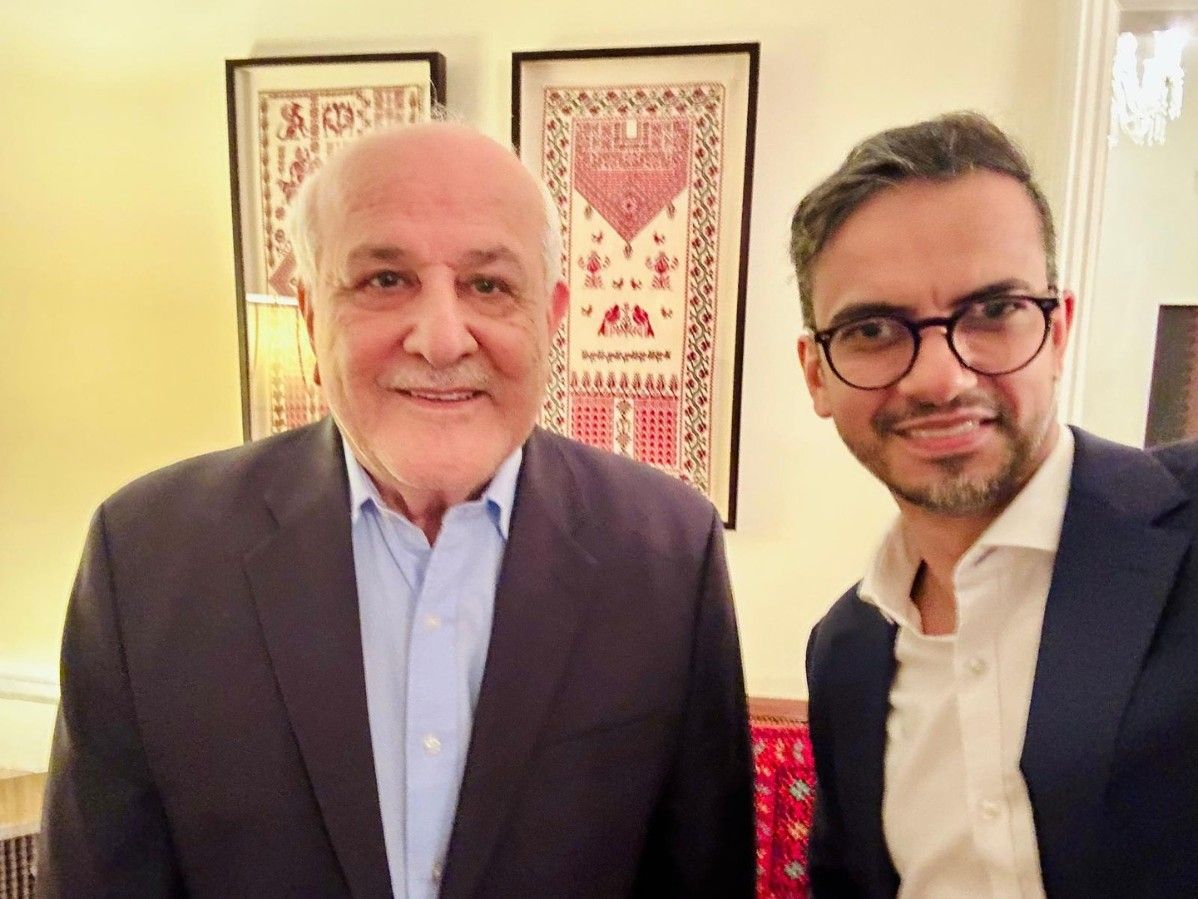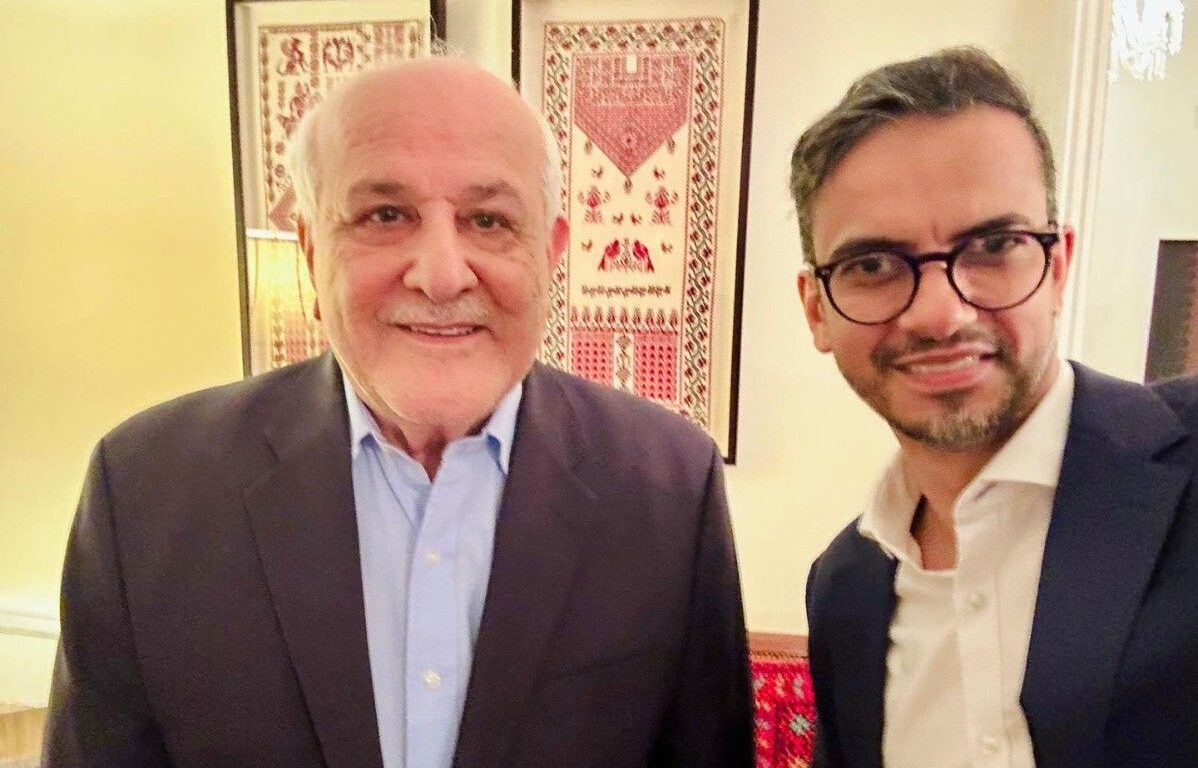
“It’s time for Canada to join France in recognizing the State of Palestine,” wrote Liberal Member of Parliament Sameer Zuberi in a
about his meeting with Dr. Riyad Mansour, Palestine’s Ambassador to the United Nations. “Nearly 150 states, Spain and Ireland included, already do.”
Zuberi represents the Pierrefonds-Dollard riding on the Island of Montreal. Ron Goldman, one of the riding’s constituents, says he left a “critical but civil” comment on Zuberi’s post and that his comment was removed shortly after being posted.
A screenshot of the comment shows Goldman accusing Mansour of “back[ing] a regime that educates children to hate and hides rockets in schools.” Goldman describes the ambassador as “a propagandist in a suit” and calls Zuberi’s meeting with Mansour an act of “moral surrender.” The comment was not visible on Zuberi’s Instagram post one day later, suggesting the MP or his staff may have hidden or deleted it. It is also possible that the comment was hidden by Instagram’s content filtering algorithms.
Zuberi’s original post was made on a verified public account that he uses to share information about his political activities. The alleged removal of Goldman’s comment raises questions about the line between appropriate content moderation and censorship by a public official.
Zuberi did not respond to National Post requests for comments before deadline.
Frustrated by the removal of his comment, Goldman says that he reported his experience to the Office of the Conflict of Interest and Ethics Commissioner. “We’re supposed to live in a democracy where all viewpoints are heard and discussed and debated. That’s what really pissed me off … Whether it’s on the left or the right, politicians should not be allowed to censor their constituents.”
The Canadian Charter of Rights and Freedoms protects freedom of thought, belief, opinion and expression. Section 32 states that the obligations expressed in the Charter apply to Parliament, the Government of Canada and all provincial governments.
Whether Section 32 extends to the online behaviour of individual Parliament members is “a bit of a grey area,” according to Marty Moore, a lawyer at the
Justice Centre for Constitutional Freedoms
.
“If [a representative is] acting as a member of the government, then clearly the charter applies,” says Moore. “If they’re acting as a Member of Parliament, there’s a textual argument to be made that the Charter applies, but it’s not clear.” Moore notes that Canadian case law does not clarify whether actions taken by an official social media account qualify as governmental action.
This grey area has allowed some politicians to censor content or block members of the public on their official social media profiles without facing legal consequences.
In 2018, the Toronto Star reported that
, a Conservative MP for the Alberta riding of Calgary Nose Hill, blocked a 17-year-old Indigenous youth representative named Lance Copegog from viewing or engaging with her official account on Twitter (now X).
Garner had tweeted about the rising number of asylum claimants, and Copepog replied, saying that “the only people that should be concerned about ‘illegal immigration’ to Canada are the original people to these lands.” Copepog said that his account was blocked by Garner within five minutes of his tweet.
In other cases, courts have intervened in politicians’ social media behaviour. In 2023, a federal court ordered then environment minister Steven Guilbeault to unblock
, the founder of alternative news platform Rebel Media, on X.
Levant successfully argued that while Guilbeault’s account was not officially attached to the Government of Canada, it resembled a government platform because it communicated important information about “matters of public concern.” Federal Court Justice Russell Zinn ruled that Guilbeault must leave Levant unblocked for the rest of his term in Parliament and contribute $20,000 to Levant’s legal costs.
As digital spaces take on a central role in civil discourse, some government bodies have published guidelines on how they will moderate online content. For example, the House of Commons states that it “does not discriminate against any views” when removing comments on its social media pages, but will remove content that is discriminatory, hateful, abusive or defamatory.
A representative from the House of Commons clarified these policies do not apply to the social media accounts of individual MPs, who are “individually responsible for … managing their accounts.” But few members of Parliament have published guidelines of their own, leaving their constituents uncertain as to what content is permitted.
Moore says that restrictions on online speech can threaten Canadians’ ability to express themselves and hold elected leaders to account. “Social media is the public sphere of our day,” he notes. “Canadians need to understand the benefits of permitting free and frank discussions in the public square.”
Our website is the place for the latest breaking news, exclusive scoops, longreads and provocative commentary. Please bookmark nationalpost.com and sign up for our newsletters here.
